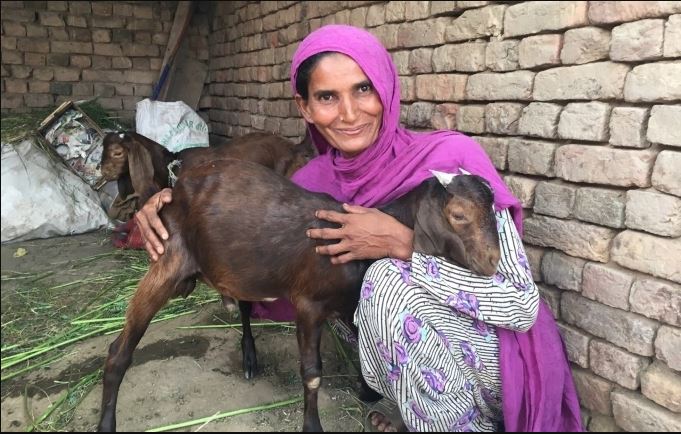Improving livelihoods for smallholder farmers
Smallholder farming is the main source of income for about 66 percent of Pakistan’s rural population and is key to poverty reduction and national food security. Improving animal survival improves family economic outcomes.

Our previous research has identified challenges in the growth and mortality of young sheep and goats. When food supplies are limited, lambs and kids are in direct competition with the adult animals for the available food.
We have been working with farmers to trial creep feeding as a means of allowing younger animals better access to additional high-quality feed without separating them from their mothers. A creep feeder provides a physical barrier that only allows smaller animals access. This allows smaller animals to enter and feed while keeping adults out.
During our six-month trial we developed creep barriers from sustainable sources and offered locally-available supplementary feeds, monitoring their effectiveness in the field.
The burden of work in subsistence farming disproportionately falls to women and children. As part of our preliminary findings, 20 of 23 family groups trialling creep feeding have reported seeing a reduction in workloads for women and children. Child labour is a driver of decreased access to education opportunities and poorer health outcomes. Introducing a practical solution to reducing barriers to opportunities is an exciting outcome for the future of women and girls in the region.
Local farmers are now being shown how to effectively use creep barriers and importantly how to make barriers with locally available materials. We have worked with the Punjab and Sindh Government livestock departments non-government organisations and the Food and Agricluture Organisation of the United Nations, training their staff about creep feeding so they can teach more farmers and expand the benefits of our work to even more households across Pakistan.
This project is part of ACIAR & DFAT's Aik Saath (which means 'together') Program of agricultural research for development, targeting small farm families. ACIAR’s strategy is dedicated to human development through improving food security and reducing poverty among smallholder farmers.
One Health research combines the elements of environmental-health, animal-health and human-health for a common goal. Dr Angus Campbell and Research Associate Anna Barrett have worked on this project. Meet our team & see our projects